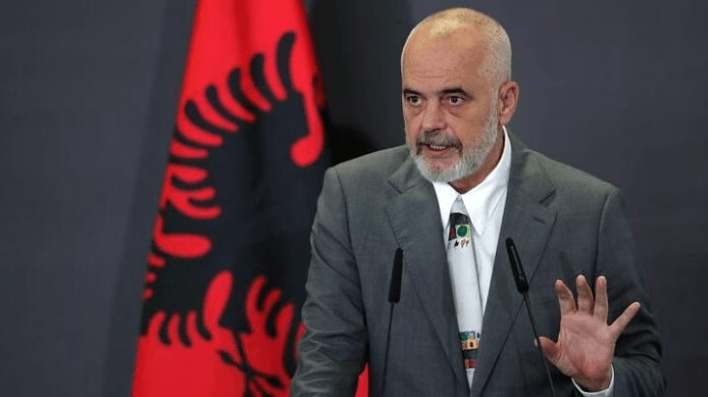
While many Muslim-majority countries such as Afghanistan, Iran, and Iraq have been making news for introducing regressive laws and customs, Albania is making waves for the opposite reason. Prime Minister Edi Rama recently announced plans to create a ‘Muslim Vatican’ by granting statehood to a 27-acre site within the Albanian capital, Tirana. This small sovereign enclave would serve as the global centre for the Shiite-Sufi order Bektashism, symbolising a haven of religious tolerance and intercultural peace. This proposal deserves attention not only for its significance within Albania but also for its intriguing global implications amid a world fraught with rising religious and ideological tensions.
The term ‘Muslim Vatican’ seems to be inspired by the Roman Catholic Church headquarters in Europe. But this term can be somewhat misleading for the proposed Albanian state, to be known as the ‘Sovereign State of the Bektashi Order’. Unlike the Vatican, which holds authority over the global Catholic community, the Albanian centre would primarily represent the Bektashi order rather than the broader Muslim world.
The Albanian Muslim Vatican would remind the world that Islam is far from monolithic and many interpretations of the religion coexist peacefully, as they should. The Bektashi order follows a mystical, inclusive form of Islam rooted in Shia Sufism, embracing pluralism and intercultural dialogue. The Islamic cleric, the supposed head of the state, described it as the space that would let women wear what they want and impose no lifestyle rules. Alcohol will not be banned and people from every faith will be welcome to visit.
Edmond Brahimaj, the head father known to Bektashi followers as Baba Mondi, explained the philosophy with which Albania intends to run the Muslim Vatican: “God does not forbid anything; that is why he gave us minds.” He also mentioned that all decisions would be taken with love and kindness.
A model for acceptance, kindness
The Betakshi order was founded in the 13th century Ottoman Empire. The community faced persecution under the Ottoman emperor, as members were considered to be heretics. Centuries later, when Kemal Ataturk shut down Bektashi prayer lodges after World War I, the community moved to Tirana. Sadly, their ordeals didn’t end there — Albania’s communist leader, Enver Hoxha, sent thugs to burn their scriptures and family homes. Currently, they claim to have 7 to 20 million followers worldwide.
Albania’s move to establish a peaceful Islamic State dedicated to tolerance is refreshingly radical. History offers few examples of states being created in such a spirit. Having experienced a complex religious history, with significant Muslim, Orthodox, and Catholic populations, Albania has long valued tolerance and peaceful coexistence. And this move can be seen as a new step in that direction.
What is more interesting is that two words — ‘Islamic’ and ‘State’ — put together evoke alarm rather than optimism. However, the Albanian proposal gives more hope than fear. Additionally, as many Islamic nations and Muslims worldwide battle with ideological conflicts between traditionalist and progressive interpretations, the establishment of a Bektashi-led microstate could help redefine the global Islamic narrative. If successful, it could inspire a more peaceful, pluralistic approach to religion, dispelling stereotypes of Islam as a monolithic entity defined by strict fundamentalist ideologies. This move provides the space for various interpretations centred around acceptance and harmony.
Questions remain
A few challenges can’t be ruled out. First, while Bektashism is recognised for its peaceful and inclusive approach, questions remain regarding how this microstate might interact with other Islamic and non-Islamic institutions. Would it be seen as legitimate by other Muslim-majority countries? Would it receive diplomatic recognition from other nations, especially those with significant Muslim populations?
Second, while this State aims to be a centre of tolerance, the act of establishing a sovereign ‘Muslim Vatican’ could draw criticism from groups wary of creating autonomous religious entities, citing concerns about independence and influence. Critics might argue that granting statehood to any religious order risks setting a precedent, potentially encouraging other religious groups to seek sovereignty.
In the best-case scenario, a Muslim Vatican can be an international hub for religious tolerance, inviting pilgrims, tourists, scholars, and diplomats to experience and learn from a model of peaceful coexistence. This vision resonates with the ideals of a globalised world that values pluralism and mutual respect. If Albania’s model proves successful, it could inspire similar initiatives among diverse religious and spiritual groups, encouraging a move toward peace and inclusivity in places fraught with sectarian divides.
The global community may look to Albania’s Muslim Vatican as a test case for what modern faith can look like — rooted in tradition yet flexible enough to embrace change. In creating a physical and symbolic space where pluralism is the guiding principle, Albania’s initiative offers a hopeful alternative in a world defined by division.






